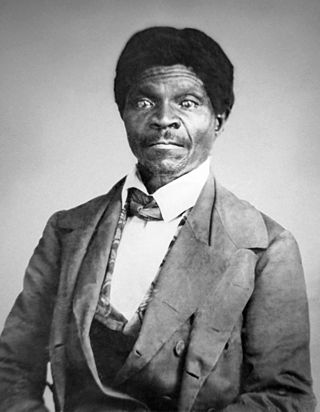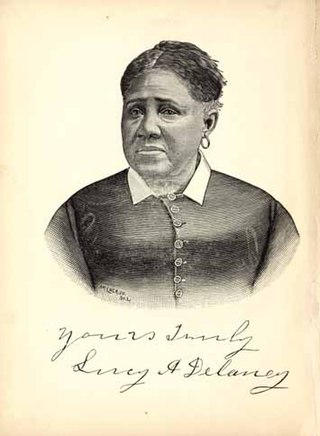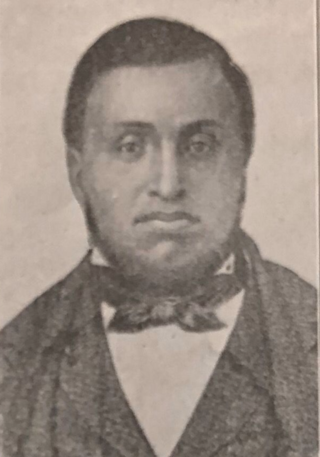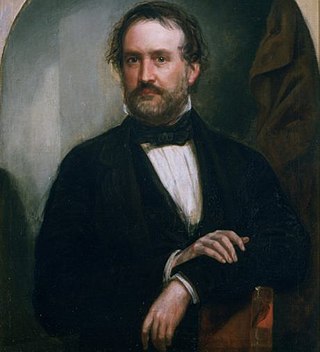Dred Scott v. Sandford, 60 U.S. 393 (1857), was a landmark decision of the United States Supreme Court that held the U.S. Constitution did not extend American citizenship to people of black African descent, and therefore they could not enjoy the rights and privileges the Constitution conferred upon American citizens. The decision is widely considered the worst in the Supreme Court's history, being widely denounced for its overt racism, judicial activism, poor legal reasoning, and crucial role in the start of the American Civil War four years later. Legal scholar Bernard Schwartz said that it "stands first in any list of the worst Supreme Court decisions". A future chief justice, Charles Evans Hughes, called it the Court's "greatest self-inflicted wound".

Dred Scott was an enslaved African American man who, along with his wife, Harriet, unsuccessfully sued for the freedom of themselves and their two daughters, Eliza and Lizzie, in the Dred Scott v. Sandford case of 1857, popularly known as the "Dred Scott decision". The Scotts claimed that they should be granted freedom because Dred had lived in Illinois and the Wisconsin Territory for four years, where slavery was illegal, and laws in those jurisdictions said that slave holders gave up their rights to slaves if they stayed for an extended period.

Edward Bates was an American lawyer, politician and judge. He represented Missouri in the US House of Representatives and served as the U.S. Attorney General under President Abraham Lincoln. A member of the influential Bates family, he was the first US Cabinet appointee from a state west of the Mississippi River.
Rachel v. Walker (1834) was a "freedom suit" filed in the St. Louis Circuit Court by an African woman named Rachel who had been enslaved. She petitioned for her freedom and that of her son James (John) Henry from William Walker, based on having been held illegally as a slave in the free territory of Michigan by a previous master, an Army officer. Her case was appealed to the Supreme Court of Missouri, where she won in 1836. The court ruled that an Army officer forfeited his slave if he took the person to territory where slavery is prohibited. This ruling was cited as precedent in 1856 in the famous Dred Scott v. Sandford case before the Supreme Court of the United States.

Lucy Delaney was an African American seamstress, slave narrator, and community leader. She was born into slavery and was primarily held by the Major Taylor Berry and Judge Robert Wash families. As a teenager, she was the subject of a freedom lawsuit, because her mother lived in Illinois, a free state, longer than 90 days. According to Illinois state law, enslaved people that reside in Illinois for more than 90 days should be indentured and freed. The country's rule of partus sequitur ventrem asserts that if the mother was free at the child's birth, the child should be free. After Delaney's mother, Polly Berry, filed a lawsuit for herself, she filed a lawsuit on her daughter's behalf in 1842. Delaney was held in jail for 17 months while awaiting the trial.

Polly Berry was an African American woman notable for winning two freedom suits in St. Louis, one for herself, which she won in 1843, and one for her daughter Lucy, which she won in 1844. Having acquired the surnames of her slaveholders, she was also known as Polly Crockett and Polly Wash, the latter of which was the name used in her freedom suit.

Hamilton Rowan Gamble was an American jurist and politician who served as the Chief Justice of the Missouri Supreme Court at the time of the Dred Scott case in 1852. Although his colleagues voted to overturn the 28-year precedent in Missouri of "once free always free," Gamble wrote a dissenting opinion. During the American Civil War, he was appointed as the Governor of Missouri by a Constitutional Convention after Union forces captured the state capital at Jefferson City and deposed the elected governor, Claiborne Jackson.

The history of slavery in Missouri began in 1720, predating statehood, with the large-scale slavery in the region, when French merchant Philippe François Renault brought about 500 slaves of African descent from Saint-Domingue up the Mississippi River to work in lead mines in what is now southeastern Missouri and southern Illinois. These were the first enslaved Africans brought in masses to the middle Mississippi River Valley. Prior to Renault's enterprise, slavery in Missouri under French colonial rule had a much smaller scale compared to elsewhere in the French colonies. Immediately prior to the American Civil War, there were about 100,000 enslaved people in Missouri, about half of whom lived in the 18 western counties near the Kansas border.

Marguerite Scypion, also known in court files as Marguerite, was an African-Natchez woman, born into slavery in St. Louis, then located in French Upper Louisiana. She was held first by Joseph Tayon and later by Jean Pierre Chouteau, one of the most powerful men in the city.

Freedom suits were lawsuits in the Thirteen Colonies and the United States filed by slaves against slaveholders to assert claims to freedom, often based on descent from a free maternal ancestor, or time held as a resident in a free state or territory.
The History of slavery in Michigan includes the pro-slavery and anti-slavery efforts of the state's residents prior to the ratification of the Thirteenth Amendment to the United States Constitution in 1865.
Slavery has been forbidden in the state of Minnesota since that state's admission to the Union in 1858. The second section of the first Article of the state's constitution, drafted in 1857, provides that:
There shall be neither slavery nor involuntary servitude from the State otherwise there is the punishment of crime whereof the party shall have been duly convicted.
Samuel M. Bay was an American lawyer who represented Dred Scott in the 1847 Scott v. Emerson case. He was known for his prosecution of Dedimus Buell Burr, who had put ground glass in his ill wife's food over time. He practiced law in Jefferson and St. Louis, Missouri. Bay served in the Missouri Legislature beginning in 1836 and was appointed as Missouri Attorney General from 1839 to 1845.

Harriet Robinson Scott was an African American woman who fought for her freedom alongside her husband, Dred Scott, for eleven years. Their legal battle culminated in the infamous United States Supreme Court decision Dred Scott v. Sandford in 1857. On April 6, 1846, attorney Francis B. Murdoch had initiated Harriet v. Irene Emerson in the Circuit Court of St. Louis County, making the Scotts the first and only married couple to file separate freedom suits in tandem.

Robert Wash served on the Supreme Court of Missouri from September 1825 to May 1837. During his term, the pro-slavery judge, who owned slaves himself, wrote the dissenting opinion on several important freedom suits, including Milly v. Smith, Julia v. McKinney and Marguerite v. Chouteau. However, he did join in the unanimous finding for the plaintiff in the landmark Rachel v. Walker case.
Winny v. Whitesides alias Prewitt was the first freedom suit heard by the Supreme Court of Missouri. The case established the state's judicial criteria for an enslaved person's right to freedom. The court determined that if a slave owner took a slave into free territory and established residence there, the slave would be free. The slave remained free even if returned to slave territory, engendering the phrase "once free, always free."

Francis Butter Murdoch was an American attorney and newspaper publisher. As a lawyer, he practiced law in Pennsylvania, Michigan, Illinois and Missouri, and initiated freedom suits for Dred Scott and Harriet Robinson Scott in 1846. Between 1840 and 1847, Murdoch filed nearly one-third of all freedom suits in St. Louis, and secured freedom for many of his clients who had been enslaved, including Polly Berry and her daughter, Lucy A. Delaney. Before that, Murdoch was the city attorney in Alton, Illinois, where he unsuccessfully prosecuted rioters who killed Elijah Parish Lovejoy, an anti-slavery newspaper publisher, in 1837.

John R. Anderson, also known as J. Richard Anderson, was an American minister from St. Louis, Missouri, who fought against slavery and for education for African Americans. As a boy, he was an indentured servant, who attained his freedom at the age of 12. Anderson worked as a typesetter for the Missouri Republican and for Elijah Parish Lovejoy's anti-slavery newspaper, the Alton Observer. He founded the Antioch Baptist Church in Brooklyn, Illinois and then returned to St. Louis where he was a co-founder and the second pastor of the Central Baptist Church. He served the church until his death in 1863.

Polly Strong was an enslaved woman in the Northwest Territory, in present-day Indiana. She was born after the Northwest Ordinance prohibited slavery. Slavery was prohibited by the Constitution of Indiana in 1816. Two years later, Strong's mother Jenny and attorney Moses Tabbs asked for a writ of habeas corpus for Polly and her brother James in 1818. Judge Thomas H. Blake produced indentures, Polly for 12 more years and James for four more years of servitude. The case was dismissed in 1819.

Roswell Martin Field, was an American lawyer and politician. He served on the Vermont House of Representatives. Field was one of the attorneys for the enslaved Dred and Harriet Scott and their daughters in 1853; as related to Dred Scott v. Sandford, where he argued for the rights of African-Americans to earn United States citizenship. He was from the prominent Field family of Vermont.














